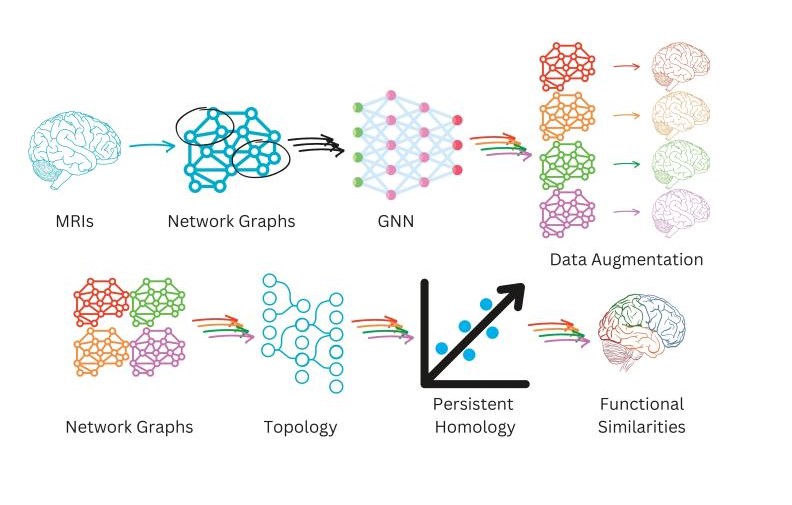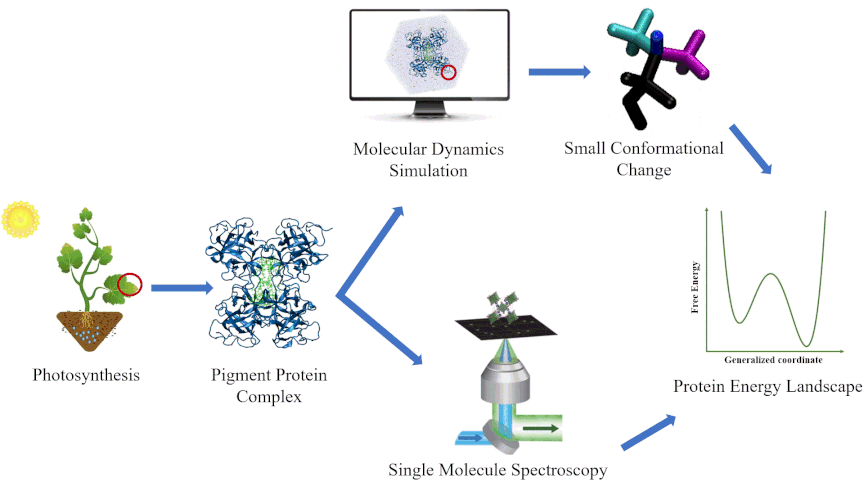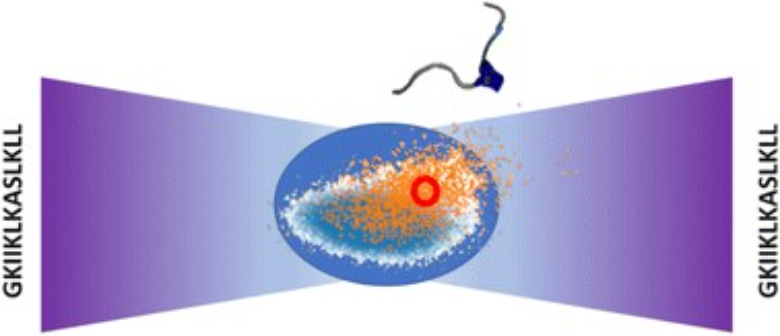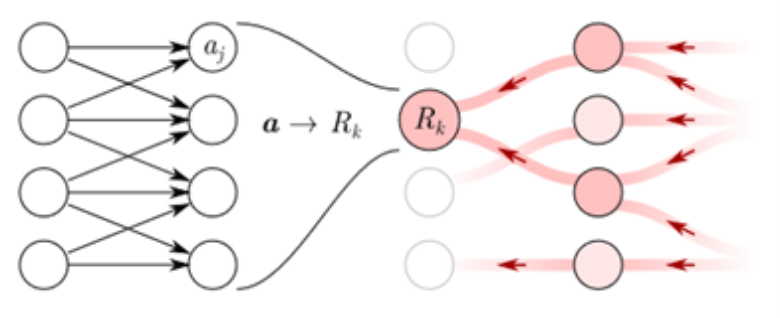Mansbach Lab Open Positions
We have no open positions at this time. See below for some examples of projects that may in the future be looking for researchers.
Looking for graduate students interested in generative deep learning for understanding long COVID
We have one open position in the Mansbach Lab for 2024 (January or September). This is part of a unique joint project with collaborators in medical physics, journalism, and history, but the primary supervision would be from Dr. Mansbach. There will be an associated international fee waiver and stipend for highly qualified students (there may still be regional fees associated with tuition)1
Project Background: Data collected from MRI imaging can be used to understand many different aspects of brains, including potential contributors to various brain-affecting conditions, such as long COVID. A single MRI image generally contains millions upon millions of data points (voxels), but it is expensive and difficult to capture even one, meaning that the number of brains scanned tends to be on the low side. In this project, we would like to investigate the use of data augmentation for identifying small-scale features through training graph neural network-based generative deep learning models on subgraphs created from voxel data.

Desired Qualifications: We are looking for a highly motivated graduate student candidate interested in generative deep learning and network analysis and who would thrive in a highly-interdisciplinary environment where we are trying to investigate different ways of knowing and understanding an affliction outside of solely traditional STEM-oriented techniques. Computer Science, Physics, or Medical Physics BA or BS is preferred (or MSc) but we would also welcome Mathematics, Biophysics, or related fields if the match is good. Experience with coding is crucial, particularly in Python, and prior experience with deep learning is a significant plus.
We are committed to cultivating an inclusive, diverse and collaborative lab environment. We encourage members of traditionally underrepresented groups in academe to contact us.
If you are interested in applying or finding out more, please email me at re.mansbach@concordia.ca with the subject heading “Graduate Student Candidate for Hypothetical Brains Project.”
1 : Note for students unfamiliar with the Canadian graduate school system: generally, you need a MSc to advance to the PhD, although fast-tracking is possible if we can make a strong case for it. I’m happy to take someone for a MSc and commit to sponsoring them on through the PhD; I’m also happy to take students who solely want a MSc. And I will take MSc students looking to move onto the PhD directly.
Looking for graduate students interested in computational modeling of photosynthetic pigment-protein complexes.
We have one open position for a co-supervised position between the Zazubovits and Mansbach Labs in the Physics Department at Concordia University for 2024. There will be an associated international fee waiver and stipend for highly qualified students (there may still be regional fees associated with tuition).2
Scientific Background: Photosynthesis is a crucial biophysical process responsible for all life on earth: beautiful and complex in equal measure. Much of photosynthesis occurs thanks to the interactions between pigment molecules, inside photosynthetic pigment-protein complexes, which harvest light energy. Optical spectroscopy experiments in the Zazubovits Lab reveal the presence of small protein conformational changes that cause a shift of the observed optical transitions in pigment-protein complexes, including Water-Soluble Chlorophyll-a binding Protein. By using molecular dynamics simulations, we have identified potential amino acid residues involved in these conformational changes, and we are interested in continuing and potentially generalizing this work to other complexes.

Desired Qualifications: We are looking for a highly motivated graduate student candidate interested in theoretical and computational biophysics, with a focus on molecular dynamics and coarse-grained protein modeling. Physics or Biophysics BA or BS is preferred (or MSc), but we would also welcome CS, biotechnology or related fields if the match is good. Experience with coding will be valuable, particularly in Python, and prior experience with molecular dynamics simulations or density functional theory is a plus.
We are committed to cultivating an inclusive, diverse and collaborative lab environment. We encourage members of traditionally underrepresented groups in STEM to contact us.
If you are interested in applying or finding out more, please email us at re.mansbach@concordia.ca or valter.zazubovits@concordia.ca .
2 : Note for students unfamiliar with the Canadian graduate school system: generally, you need a MSc to advance to the PhD, although fast-tracking is possible if we can make a strong case for it. I’m happy to take someone for a MSc and commit to sponsoring them on through the PhD; I’m also happy to take students who solely want a MSc. And I will take MSc students looking to move onto the PhD directly.
Looking for graduate students interested in explainable AI for antibiotic design
We have one opening for a co-supervised position between the Xiao and Mansbach Labs in the Physics Department at Concordia University for 2024. There will be an associated stipend for highly qualified students (there may still be regional fees associated with tuition). 3
Scientific Background: At a time when rising antimicrobial resistance is spurring the search for novel antibiotic alternatives, deep learning is becoming a force to be reckoned with in the area of biomolecular design. One major downside to many deep learning algorithms, especially generative ones for design, is their lack of explicability. It is unwise to use an algorithm without understanding its reasoning, especially for something that may eventually have applicability to human health. We are therefore looking for a student interested in developing and using techniques from explainable artificial intelligence to help design and understand a pipeline for design of novel antibiotic molecules, either small molecules or antimicrobial peptides.


Desired Qualifications: We are looking for a highly motivated graduate student candidate interested in theoretical and computational biophysics, with a focus on generative deep learning and explainable AI techniques. Physics or Computer Science BA or BS is preferred (or MSc), but we would also welcome biophysics, biotechnology or related fields if the match is good. Must have strong coding skills and preferably prior experience with deep learning, and practice with Pytorch or Python is a plus.
We are committed to cultivating an inclusive, diverse and collaborative lab environment. We encourage members of traditionally underrepresented groups in STEM to contact us.
If you are interested in applying or finding out more, please email us at re.mansbach@concordia.ca or yiming.xiao@concordia.ca .
3 : Note for students unfamiliar with the Canadian graduate school system: generally, you need a MSc to advance to the PhD, although fast-tracking is possible if we can make a strong case for it. I’m happy to take someone for a MSc and commit to sponsoring them on through the PhD; I’m also happy to take students who solely want a MSc. And I will take MSc students looking to move onto the PhD directly.